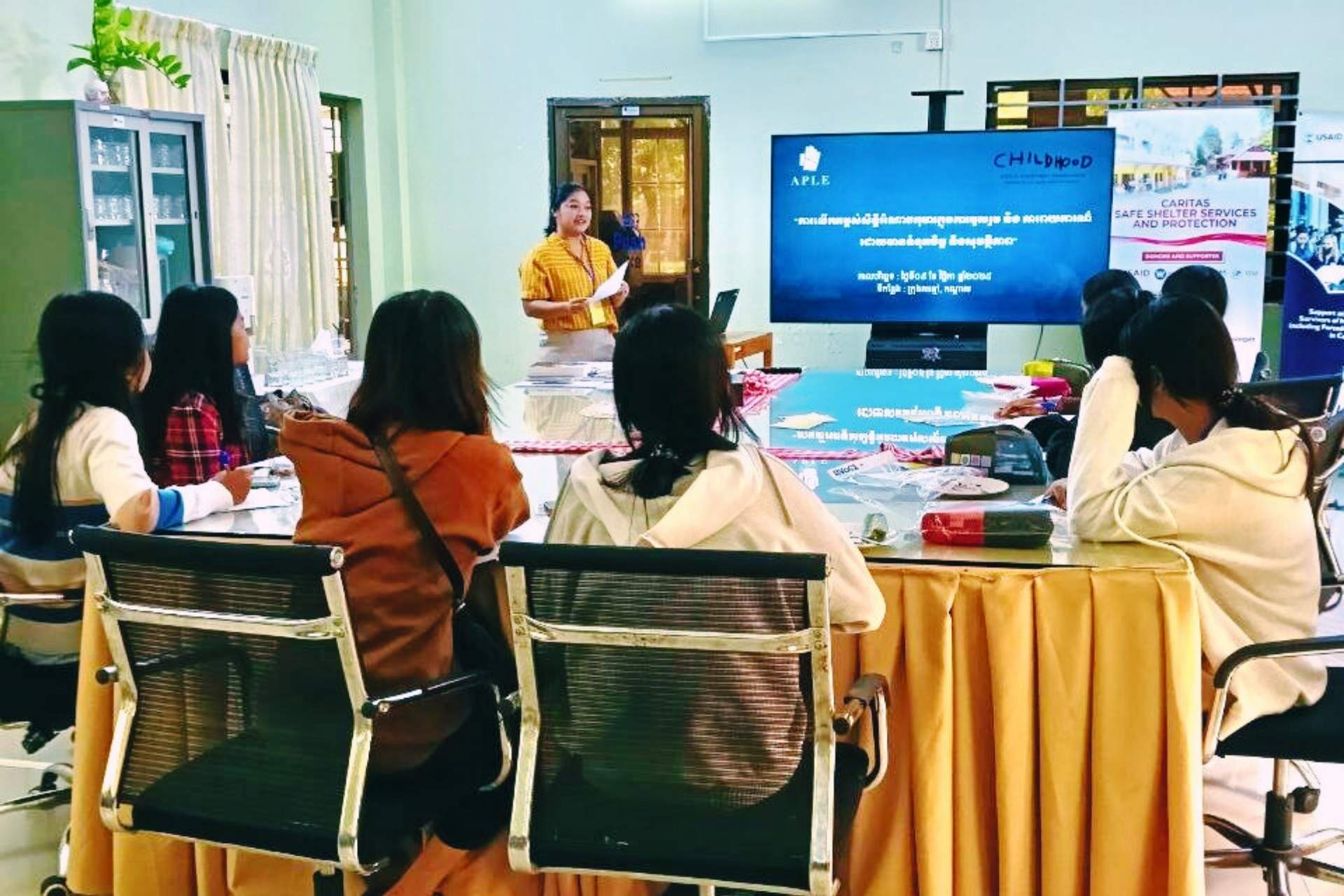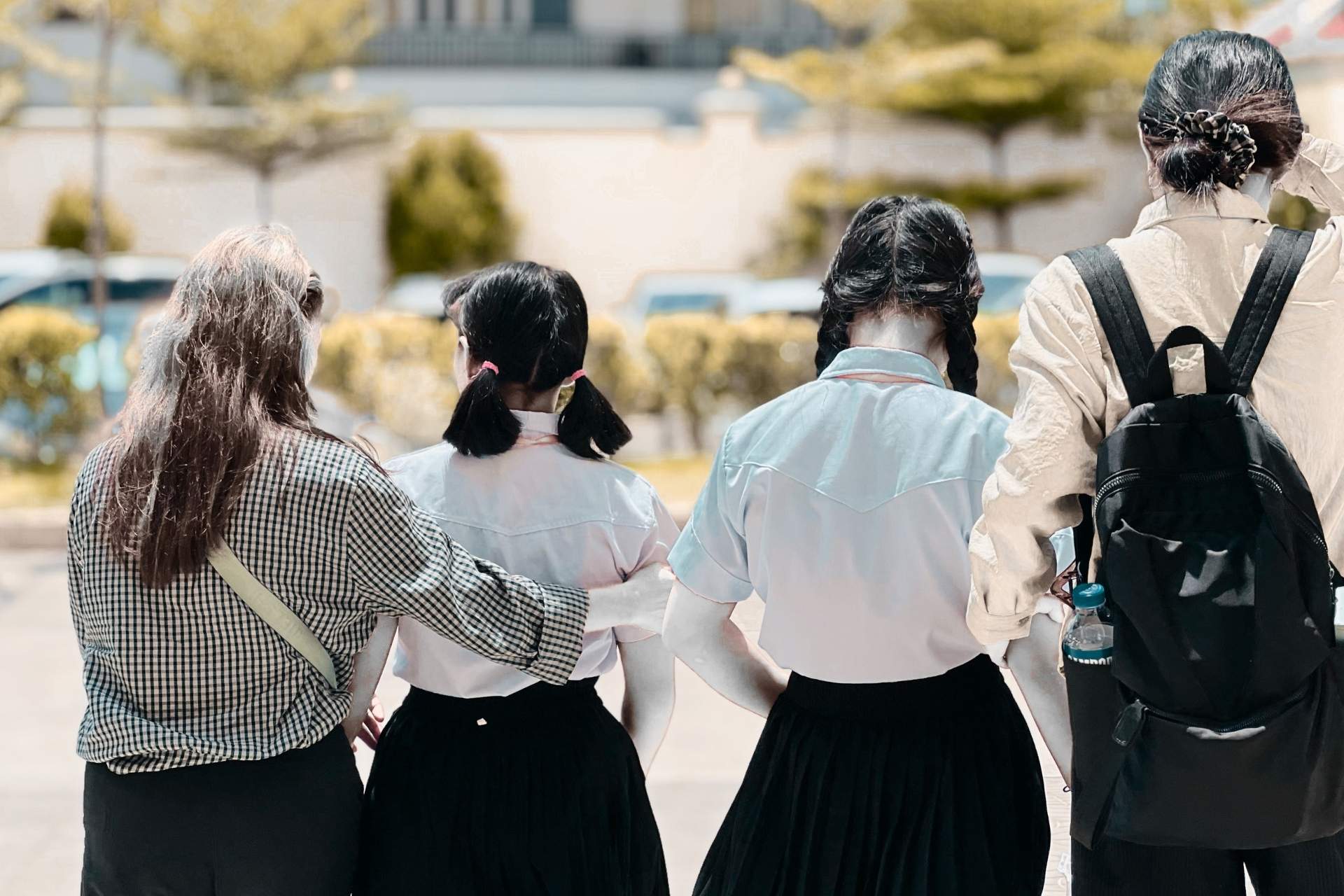Victim Support and Assistance
- Home
- ViSA


Overview
Addressing the unique needs and vulnerabilities of children
APLE’s Victim Support and Assistance Program provides comprehensive, child‑focused services to help children and their families heal, recover from trauma, and seek justice. We combine immediate crisis support, coordinated case management, legal assistance, counseling, education and life‑skills support with training for professionals so the wider protection system can respond sensitively and effectively.
- Access to justice: Children who have experienced sexual exploitation have the right to a timely, fair remedy through the State criminal justice system, including protection, participation in proceedings, and pathways to compensation and recovery services.
- Best interests of the child: In all decisions affecting a child, their safety, development, views and unique needs must be a primary consideration.
- Child‑friendly justice: Justice that is accessible, age‑appropriate, speedy and respectful of privacy and dignity. It ensures due process for all parties while adapting procedures to the needs and rights of children (for example, child‑friendly interviews, in‑camera hearings, minimal repetition, and clear, age‑appropriate information).
ViSA PROGRAM
Specific Goals
APLE works through four inter‑connected pillars to prevent abuse, protect victims, and hold perpetrators to account.
Immediate Crisis Support
Ensure children and families can access gender‑sensitive, child‑focused services that prioritize safety, stabilization and urgent needs.
Coordinated Services
Strengthen collaboration among government and NGO providers to deliver a united, child‑centered response leveraging collective expertise.
Child Sensitive Response Systems
Improve adherence to child‑friendly SOPs so children are protected, informed and empowered throughout recovery and in legal processes.
Enhancing Support for Victims
Equip law enforcement, healthcare providers, social workers and mandated reporters with knowledge and tools to offer trauma‑informed, effective support.
ViSA Program
What the Program Does
Child sexual exploitation and abuse is evolving. Offenders exploit travel, voluntourism, new digital platforms and poverty‑driven vulnerabilities. Cultural stigma, and limited resources remain major barriers. APLE focuses on high‑impact, sustainable interventions to meet these challenges.

Psychological Counseling and Social Support
Trauma‑informed care to help children process experiences in a safe environment, rebuild self‑esteem and strengthen resilience.

Legal assistance and Court Accompaniment
Practical guidance on rights, case procedures, and representation to help bring offenders to justice while reducing re‑traumatization.

Case management and Service referrals
A robust system that follows government policies and guidelines to assess needs and coordinate accessible services.
Barriers the Program Addresses
Children face unique and often compounding obstacles in accessing services and justice. Our program is designed to tackle common barriers seen in many countries, including Cambodia.
- Fear, stigma and lack of trust that deter reporting and help‑seeking
- Fragmented referrals and limited access to shelters and specialized services
- Financial and logistical obstacles (for example, transportation) that impede participation
- Limited child‑friendly procedures and repeated interviews that increase trauma
- Insufficient, child‑friendly information about rights, case progress and remedies
Program Needs
Why This Matters
Child sexual exploitation and abuse is evolving with digital platforms, travel and voluntourism. Justice systems everywhere face resource constraints and complex cases. By investing in capacity, coordination and child‑centred practice, Cambodia can reduce impunity, improve survivor recovery, and deliver credible, fair justice that deters future offending.
Child sexual exploitation and abuse is evolving with digital platforms, travel and voluntourism.

Justice systems everywhere face resource constraints and complex cases to handle effectively.

Child‑centred practice can reduce impunity, improve survivor recovery, and deliver justice that deters future offending.
Total images Removed
Cases Forwarded to Law Enforcement
Victims Identified


Learn More
Important Terminologies
Using correct terminology helps in advocating for the seriousness of the crime and encourages appropriate legal action and social response.
refers to images, videos, writings, and/or recordings of child sexual abuse or exploitation
The term child sexual abuse material is increasingly being used to replace the term child pornography. This switch of terminology is based on the argument that sexualized material that depicts or otherwise represents children is indeed a representation, and a form, of child sexual abuse, and should not be described as pornography. As the hotline and child protection professional, we prefer to use the terminology 'CSAM', to 'Child Pornography', The term we use does matter. To learn more about terminology guidelines, click here.
refers to the act of soliciting a child, either in person or through the use of the internet for sexual purposes such as to receive sexual images online or to meet in person to sexually exploit him/her
refers to the act of using self-produced sexual messages/pictures of a child in order to threaten him/her for sexual favor, money or other benefits
refers to the act of using a child in sexual activities that are recorded and transmitted live over the Internet
refers to the act of sexually exploiting a child that is involved in a context of travel, tourism, or both, and can be
committed by either foreign or domestic tourists and travelers
refers to the act of forcing a child to have sex against her or his will, often involving the use of physical force or violence
refers to the act of involving a child in sexual activity against his/her consent such as touching the child's genital or molesting the child for sexual gratification

Ask Question
Frequently Asked Questions
What kind of support does APLE offer to victims of child exploitation?
APLE provides comprehensive support including psychological counseling, legal assistance, educational support, and life skills training to help victims heal and reintegrate into society.
Can APLE help with the legal process for victims of exploitation?
Yes, APLE offers legal support to guide victims through the justice system, including understanding their rights and representation in court to ensure their abuser is brought to justice.
How does APLE's program assist in the emotional recovery of victims?
Through psychological counseling, APLE helps victims process their trauma in a safe environment, rebuilding their self-esteem and aiding their emotional recovery.
Why we promote children's voices and perspectives
Children and young individuals possess strong viewpoints, and it is their legitimate right to express them in matters that impact their well-being. APLE strives to involve children in our initiatives by gathering their voices and perspectives, which are then utilized to inform policy and legislative development that caters to children’s needs. We ensure to conduct effective consultations with child participation throughout the entire process of program development, implementation, monitoring, and evaluation.
Why we work with other victim service organisations
We place great emphasis on forming formal partnerships with government and NGO service providers. These partnerships are crucial in increasing the number of referrals and ensuring that child victims and their families have access to the necessary resources. Our goal is to develop and implement a robust Case Management System that adheres to the government’s policies and guidelines. This system will be used to manage referrals to specialist services and ensure that child victims receive the age-appropriate, gender-sensitive, and accessible services they need from the start to the end of their legal proceedings. By doing so, we hope to provide comprehensive support to child victims and their families and help them navigate the complex legal system.
How does APLE ensure the comprehensive care of victims?
By offering a multi-faceted approach that addresses immediate needs and lays the groundwork for long-term recovery, APLE ensures victims receive the holistic care necessary for their empowerment and healing.
Why we partner with government agencies
APLE partners with government and NGO service providers to refer child victims to appropriate long-term support services. We coordinate in assessing the needs of child victims and their families and ensure they receive access to comprehensive support services. Our key partners include the Ministry of Social Affairs, Veterans and Youth Rehabilitation (MoSVY) and their provincial departments (DoSVY), the Ministry of Women Affairs at national and subnational levels, and other NGOs providing child protection services who are members of the Family Care First network.
Our site uses cookies to enhance your experience and analyze traffic. By clicking "Accept All," you agree to our use of cookies. You can choose to deny or manage your cookie preferences.


Complexities